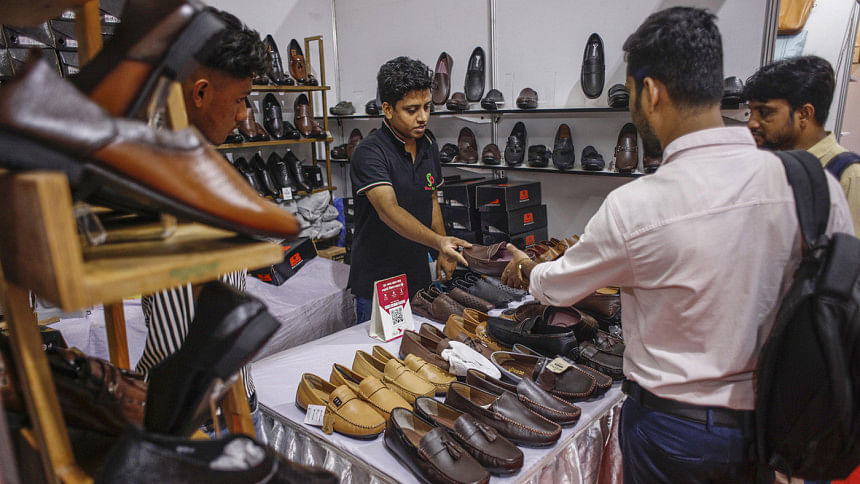How much of SME potential have we realised?

Small and medium enterprises (SMEs) have played an important role in Bangladesh's economic development, but their full potential remains untapped.
With businesspeople and experts opining that the next few years will be more volatile due to geopolitical tensions and a global economic slowdown, the over 1 crore SMEs in Bangladesh can provide a welcome boost to the economy if an environment that allows them to prosper is created.
Therefore, policymakers must work together in harmony and place a special focus on SMEs, which accounted for almost 25 percent of Bangladesh's gross domestic product (GDP) in 2018, according to a Planning Division report.
There were 78.8 lakh business establishments in the country, according to an Economic Census 2013 conducted by the Bangladesh Bureau of Statistics. Of them, 87.52 percent were cottage, 1.33 percent micro, 10.99 per cent small, 0.09 percent medium and 0.07 percent large enterprises.
These modest operations churn out hundreds of products, including ornaments, agricultural machinery, processed agricultural products, jute goods, ceramics and countless others.
But there remain problems.
A lack of access to finance is the biggest obstacle for SMEs, especially as it prevents companies from setting up shops or scaling up existing operations.
Other major challenges such as a lack of fiscal incentives, research, design, and compliance, alongside management problems, policy inconsistency, and double taxation also pose hurdles.
As such, appropriate policy support is vital to facilitating the development of SMEs and increasing their contribution to the GDP.
Md Rashedul Karim Munna, managing director of Creation Private, a leading manufacturer and exporter of jute products, said it is estimated that Bangladesh will become a trillion-dollar economy by 2040.
SMEs can be a good tool in that case, he added.
According to him, policymakers must realise that SMEs can also help the National Board of Revenue expand their value added tax and income tax net.
Another issue that Munna stressed was the need to update the definition of SMEs.
"We are demanding that the definition of cottage, micro, small or medium enterprise be changed," he said, adding that the SME Foundation had sent a proposal to the Ministry of Industries in this regard.
Considering the challenges that SMEs already face, industry people said the government should provide different incentives to bring more businesses into formal channels.
During Covid-19, when incentives were given by the government, those doing business in informal channels did not get support.
According to Munna, around 45 percent of the money allotted was not even disbursed.
The issue of compliance in production units of SMEs should also be considered, he added. The authority concerned should decide where such production units can be established.
Furthermore, the government should adopt policies to discourage the import of high-value or high-quality products that can be produced by local SMEs, such as jute products.
At present, more than 100 jute goods, including bags, rugs and even decorations, are sold at home and abroad and Bangladesh exported jute and jute products worth $912.25 million in the last fiscal year.
Due to geopolitical tensions, many buyers want to leave China, which could present an opportunity to boost Bangladesh's exports in the future.
Considering the scenario after the graduation from least developed country status in 2026 and the subsequent loss of trade benefits, Bangladesh must go for bilateral trade agreements with the countries where it will not get GSP facilities.
In the last 30-35 years, the agriculture sector has benefitted tremendously from research and development initiatives. For example, there are new varieties of rice that provide higher yields and are more resilient.
The SME sector will also benefit from such initiatives as it could increase the diversity of products.
It is also important to ensure a level playing field for small businesses, which generate employment and increase opportunities for women and the financially insolvent.
Another major issue is the lack of skilled human resources, so it is the need of the hour to focus on upskilling. Similarly, there is a need to provide training on the use of technology to entrepreneurs.

 For all latest news, follow The Daily Star's Google News channel.
For all latest news, follow The Daily Star's Google News channel. 



Comments